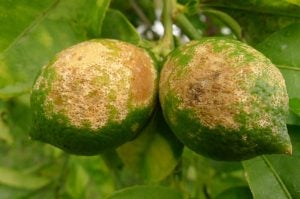California’s Ninth Circuit Court of Appeals has long been the favored destination for individuals and organizations challenging the human health and environmental impacts of crop protection products. On Wednesday, the appeals court invalidated the U.S. Environmental Protection Agency’s approval of the antibiotic streptomycin as a pesticide on citrus crops.
Because streptomycin is considered medically important in human populations, farmworkers and public-interest groups took the issue to court over concerns that its use as a pesticide to control bacteria, fungi, and algae could lead to antibiotic resistance in people. Concerns were also voiced that streptomycin sulfate could have an impact on pollinators.
According to Courthouse News Service, the EPA was to first determine the product would not cause “unreasonable adverse effects on the environment,” as required by the Federal Insecticide, Fungicide, and Rodenticide Act. In the lawsuit against streptomycin sulfate, groups argued the agency failed to do proper analysis.
The court’s decision directs the EPA to bolster its analysis of the potential risks to pollinators and assess whether streptomycin is actually effective for one of its approved uses. The court noted that it does not take the decision to vacate an agency’s decision lightly, and in this case, “EPA’s statutory violations coupled with its own concessions make this the required course.”
Daniel Bress, one of the three U.S. Circuit Court judges reviewing the case, said: “Although substantial evidence supported the EPA’s determination that streptomycin was effective at treating Huanglongbing disease and citrus canker, the EPA failed to provide a sufficient explanation for the registration labels’ suggestion that streptomycin could be used to prevent either disease. Accordingly, the panel granted the petition for review as to the pollinator and disease prevention issues so that the EPA could provide either additional support or a more cogent explanation of why the current record was adequate to support the registration, or both.”

Petitioners in the case include the Natural Resources Defense Council and U.S. PIRG, represented by the NRDC; Beyond Pesticides, Environmental Confederation of Southwest Florida (ECOSWF), Farmworker Association of Florida, Farmworker Justice, and Migrant Clinicians Network, represented by Earthjustice; and the Center for Biological Diversity, represented by in-house counsel.
They noted in a news release that streptomycin is used to treat serious illnesses ranging from tuberculosis to urinary tract infections. The overuse of medically important antibiotics has contributed to increased antibiotic resistance in bacteria, a pressing public health crisis causing more than 35,000 deaths each year in the United States.
“The court’s decision to vacate the EPA’s unlawful approval of streptomycin is a win for public health, pollinators and endangered species. I hope that the EPA understands now that it can’t just wave away its legal obligations to examine the impacts of the pesticides it approves,” said Hannah Connor, an attorney for the Center for Biological Diversity.
California growers supply 90 percent of the fresh citrus in the United States and export to over 16 foreign countries. Arizona, Texas, and Florida are the other states where citrus is most prominent.


